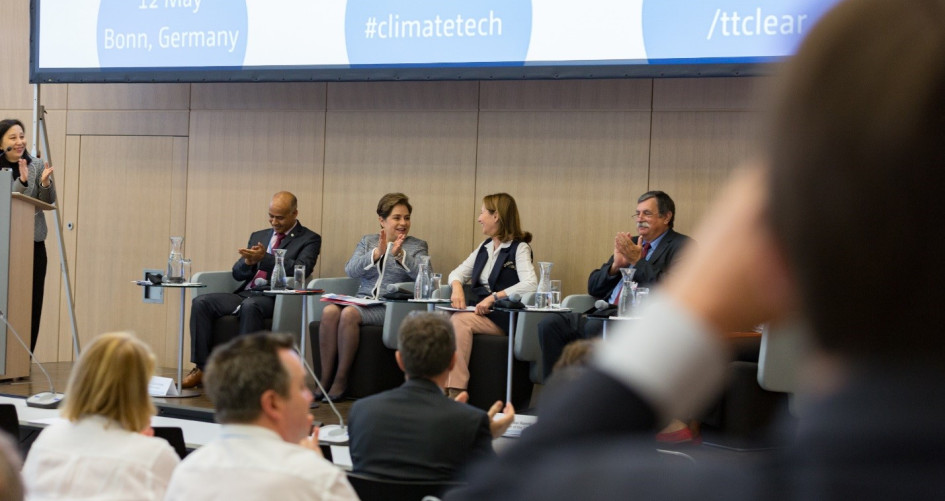During the recent UN Climate Change Conference in Bonn (8-18 May), a special event on innovation underlined the importance of technological innovation for achieving the goals of the Paris Climate Change Agreement.
The event, a recording of which is available online, showcased experiences and good practices related to technological innovation that countries can replicate and scale-up. Examples ranged from off-grid electricity with solar panels paid by mobile money in rural communities in three countries in Africa, to a new tool of weather forecasting for the farming community in Jamaica and a bus-rapid transport system in cities in China and Ethiopia.
Organized by the UNFCCC Technology Executive Committee (TEC), the event highlighted how innovation can support implementation of national climate action plans (Nationally Determined Contributions or "NDCs") and mid-century strategies. The one-day event brought together leading experts on climate change and innovation, governments and other key stakeholders to identify ways to scale up and speed up innovation for addressing climate change.
In opening the event, Executive Secretary Patricia Espinosa noted that climate technology represents one of the most potent and powerful ways to accelerate the transformation to low-emission, sustainable societies that are resilient to climate impacts. Ségolène Royal, President of the UN Climate Change Conference COP 21 in 2015, emphasized the need to bring together green finance and technological innovation in technological solutions to fight global warming.
Also during the opening, the TEC Chair, Michael Rantil pointed out that many parties have submitted their Nationally Determined Contributions and that “in these documents, many countries note their technology needs, opportunities and challenges”. “Technological innovation is a complex and multifaceted issue. But it is also one of the keys for solving the climate challenge”, he added.
Participating experts provided contrasting views on how the global community may stimulate such innovation. Youba Sokona, Vice-Chair of the Intergovernmental Panel on Climate Change (IPCC), said that innovation is crucial, and identified four key elements for accelerating innovation efforts: system leadership, strong institutions, resources (human, organizational and financial), and focusing on both short term and long term priorities.
The Co-President of the Club of Rome, Anders Wijkman, said that we need a transformative change and to be really innovative in order to move to zero emissions and go beyond incremental percentage cuts of greenhouse emissions. To achieve this, he noted that “Policy environment is key. … We need regulation and policy incentives for that necessary innovation to happen”.
Based on the event, the UNFCCC Technology Executive Committee will prepare recommendations to COP 23 on policies for accelerating and scaling-up technological innovation. It will also publish a policy brief with key messages on innovation policies.
In addition to the special event, recently the TEC identified how countries can enhance efforts to finance the research and development of new technologies for addressing climate change. A new TEC working paper highlights the importance of countries collaborating to undertake such activities, as this allows them to draw on comparative strengths and share the cost of investment. Strikingly, it notes that in recent years financing for the research and development of renewable technologies has plateaued.
|
What is the Technology Executive Committee? The UNFCCC Technology Mechanism works to enhance climate technology action through two complementary bodies: the Technology Executive Committee (TEC) and the Climate Technology Centre and Network (CTCN). The TEC, as the policy arm of the Technology Mechanism, analyses technology policy issues and provides recommendations to support countries in effecting low-emission and climate resilient development. It consists of 20 technology experts from around the world. |
